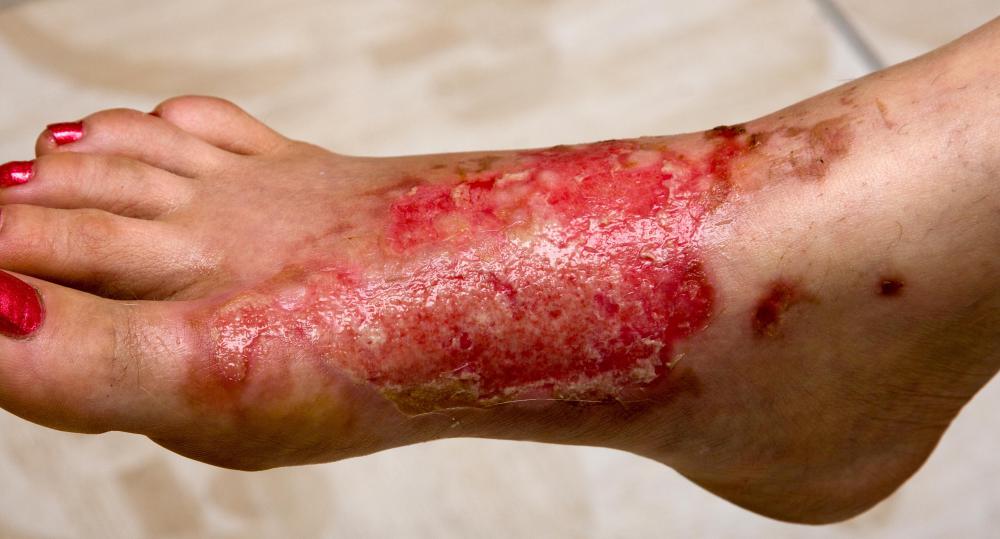At WiseGEEK, we're committed to delivering accurate, trustworthy information. Our expert-authored content is rigorously fact-checked and sourced from credible authorities. Discover how we uphold the highest standards in providing you with reliable knowledge.
What is Decompression Sickness?
Decompression sickness is a medical condition which manifests in people who have undergone rapid decompression. It most classically affects divers who ascend to the surface too quickly, although decompression sickness can also happen when a pressurized aircraft loses pressure, or when someone exits a pressurized environment like a caisson or a mine. Decompression sickness is also referred to as DCS, decompression illness, the bends, diver's sickness, or caisson sickness.
This condition is caused by the body's response to pressure. As the pressure around a body increases, the levels of dissolved gases in the blood increase. When the pressure decreases rapidly, these dissolved gases turn into bubbles, rather than dissipating naturally through the lungs. These bubbles cause a variety of health problems. Since nitrogen is the most abundant dissolved gas, the bubbles involved in decompression sickness are typically nitrogen bubbles.

When people dive to certain depths, they have to undergo decompression before they are allowed to surface. In decompression, the body is given a chance to acclimate to the change in pressure when a diver either makes a series of decompression stops in the water, or sits in a pressurized chamber known as a hyperbaric chamber and the pressure is slowly decreased over a period of minutes or hours. Hyperbaric chambers are also used in treatment of decompression sickness: sometimes the best treatment is recompression followed by a slow decompression. Special gas mixtures are also used for deep water dives to reduce the risk of developing DCS.

The symptoms associated with DCS include joint pain, itching, chest pain, cramps, skin irritation, and neurological symptoms like confusion or even paralysis. Sometimes the symptoms are mild, and a diver may not be aware that he or she has developed decompression sickness, leading some divers to joke that denial is another common symptom. Diving with a buddy and under the supervision of someone who is experienced with decompression sickness is a good idea, as it ensures that someone will intervene quickly if decompression sickness manifests.

This condition can cause long-lasting physical and neurological problems ranging from incontinence to partial paralysis if it is not addressed. In some cases, it can even be fatal. Fortunately, rates of decompression sickness have radically decreased since the condition was first identified and understood, and the incidence rate is very low. The condition is most common among inexperienced divers and divers who experience emergencies which force them to surface in less than ideal conditions.
AS FEATURED ON:
AS FEATURED ON:














Discussion Comments
You have to be careful if you have been diving, and plan to fly the next day, to make sure you are safe to do so. Ask a doctor or an experienced diver to make sure. Even though they pressurize the cabin of the airplane it can still be different from sea level and if you've been diving even a little bit of difference in altitude might make a difference to your health.
Not very common, but something to be aware of. They had it as a medical mystery on House once I think, although I don't know how accurate it was.
When I was learning how to dive the many, many risks involved really scared me. Getting the bends was one of the bigger ones. I was always terrified that I would have to come up in a hurry. In movies, divers always seem to swim straight up from the bottom of the ocean without a care in the world. In reality, they would be writhing in agony on the boat floor afterwards.
I know it isn't all that common and that even if it does happen, there are many options to fix it. It is just one more good reason to never go diving without another experienced diver along who can help if something goes wrong.
But, it still kind of freaks me out.
Post your comments